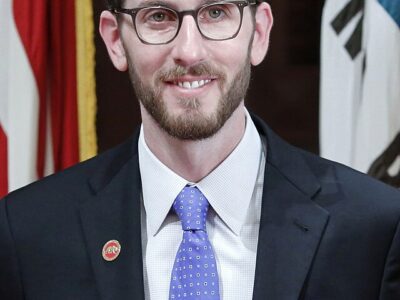The Schwarzenegger Legacy: Environmentalism on the Cheap

As Californians say “hasta la vista, baby” to Governor Schwarzenegger this morning, media retrospectives have focused on his environmental accomplishments as one of his few positive legacies. Specifically, they point to his signing of AB 32, the landmark climate change law limiting the state’s greenhouse gas emissions. And Schwarzenegger himself likes to think of himself as an environmentally friendly Republican. But how “green” was his administration? While the Governator signed some landmark environmental legislation, the record in my opinion is mixed, due mostly to his unwillingness to fund important environmental initiatives and his incompetence at managing the state budget, which resulted in negative environmental consequences.
First, the funding problem. A good example is SB 375, another landmark bill that Schwarzenegger signed that linked transportation and land use planning in the state to reduce greenhouse gas emissions. The law mandates a complicated planning process by regional entities. Yet the legislation contains no funding to support cash-strapped local governments and their regional bodies as they undertake the complicated and necessary planning effort to implement the law. When the legislature tried to remedy the situation last year with a bill (SB 406) that would allow regional entities to raise the vehicle license fee by a measly $2 to fund the implementation effort, Schwarzenegger vetoed it, claiming it was basically a tax hike.
Schwarzenegger also took issue with a seemingly innocuous environmental efficiency measure paid for by targeted property tax increases requiring supermajority support. SB 279 would have allowed neighborhoods to form districts that could raise property taxes — by a 2/3 vote of all residents within the district — to fund energy efficiency measures, like retrofitting buildings to weatherize them and reduce energy use. The measure would have financed local jobs, reduced pollution, and saved residents on their energy bills. But evidently the governor had a bad experience with similar funding mechanisms in his Brentwood hometown, so he vetoed it.
Even AB 32, his crowning achievement, suffers from treading lightly on the fossil fuel industry. Rather than encouraging the Air Resources Board, the agency in charge of implementing the law, to explore direct taxation of fossil fuels as a means of reaching the target, the governor has insisted on achieving the targets through a risky and probably ineffective cap-and-trade plan. The new regulations for the plan also call for mostly free distribution of allowances to major emitters, rather than auctioning the allowances to generate revenue for additional greenhouse gas-fighting measures.
Now, lest I appear to be too nitpicky with the outgoing governor, he did sign the California Solar Initiative, which created rebate incentives for installing solar panels (paid for by electricity and gas rate increases), and he campaigned for a number of bond measures to improve infrastructure. Perhaps the most notable is the 2008 high speed rail initiative, which unfortunately faces a severe budget shortfall and seems unlikely to be built to its original vision anytime soon. But overall, these measures and others like them fail to change his established pattern of shortchanging important environmental initiatives.
On the budget front, Schwarzenegger’s mismanagement has had serious environmental repercussions. His decision to rescind the vehicle license fee upon taking office cost the state $6 billion a year in revenue, which the governor never made up for in reduced spending or alternative revenue. While the economic downturn would have occurred regardless, the structural deficits he created resulted in environmental harm on multiple fronts. First, to cover other budget costs, the state government raided local transit funds, leading to service cutbacks and fare increases for public transit riders who either can’t afford or choose not to drive a car. Second, the state raided local redevelopment funds, which are often used to fund neighborhood revitalization that leads to more dense and pedestrian-friendly development and less driving. Finally, the state ended up curtailing access to state parks, which discourages citizens from enjoying the outdoors and ultimately hurts long-term political support for the environment.
Schwarzenegger’s tenure as an environmentally friendly governor certainly resulted in major accomplishments. But the mixed nature of his record suggests that conservative politics and environmentalism will probably always have a low ceiling, despite the arguments of some principled conservatives to the contrary. After all, making the transition from fossil fuels to cleaner sources of energy before it’s too late will require upfront investments (and fossil fuel taxes) that conservatives are basically unwilling to support. But at least environmentalists squeezed some crucial victories out of Schwarzenegger, which will last hopefully longer than the budget mess and short-term setbacks that his administration also created.







Reader Comments